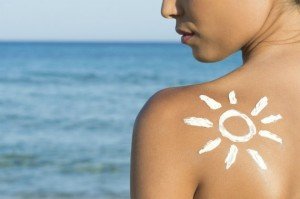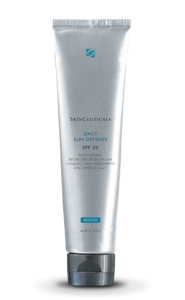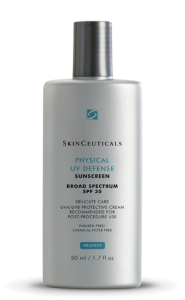Sun safety is never out of season. Summer’s arrival means it’s time for picnics, trips to the pool and beach—and a spike in the number of sunburns. But winter skiers and fall hikers should be as wary of the sun’s rays as swimmers. People who work outdoors need to take precautions, too. Dr. Mark Bishara- with offices in Mansfield, Southlake and Dallas- focuses on educating patients about skin protection and wants to help patients restore or achieve their ideal appearance.

The need for sun safety has become clearer over the past 30 years. Studies show that exposure to the sun can cause skin cancer. Harmful rays from the sun—and from sunlamps and tanning beds—may also cause eye problems, weaken your immune system, and give you skin spots, wrinkles, and “leathery” skin.
Sun damage to the body is caused by invisible ultraviolet (UV) radiation. People recognize sunburn as a type of skin damage caused by the sun. Tanning is also a sign of the skin reacting to potentially damaging UV radiation by producing additional pigmentation that provides it with some—but often not enough—protection against sunburn.
Whatever our skin color, we’re all potentially susceptible to sunburn and other harmful effects of exposure to UV radiation. Although we all need to take precautions to protect our skin, people who need to be especially careful in the sun are those who have:
- pale skin
- blond, red, or light brown hair
- been treated for skin cancer
- a family member who’s had skin cancer
If you take medicines, ask your health care professional about sun-care precautions; some medications may increase sun sensitivity.

Reduce Time in the Sun
It’s important to limit sun exposure between 10 a.m. and 2 p.m., when the sun’s rays are strongest. Even on an overcast day, up to 80 percent of the sun’s UV rays can get through the clouds. Stay in the shade as much as possible throughout the day.
Dress with Care
Wear clothes that protect your body. If you plan on being outside on a sunny day, cover as much of your body as possible. Wear a wide-brimmed hat, long sleeves, and pants. Sun-protective clothing is now available. However, FDA only regulates such products if the manufacturer intends to make a medical claim. Consider using an umbrella for shade.
Be Srious About Sunscreen
Check product labels to make sure you get the following:
- a “sun protection factor” (SPF) of 15 or more. SPF represents the degree to which a sunscreen can protect the skin from sunburn.
- “broad spectrum” protection—sunscreen that protects against all types of skin damage caused by sunlight
- water resistance—sunscreen that stays on your skin longer, even if it gets wet. Reapply water-resistant sunscreens as instructed on the label
Tips for Applying Sunscreen:
- Apply the recommended amount evenly to all uncovered skin, especially your lips, nose, ears, neck, hands, and feet.
- Apply sunscreen 15 minutes before going out in the sun.
- If you don’t have much hair, apply sunscreen to the top of your head, or wear a hat.
- Reapply at least every two hours.
- Give babies and children extra care in the sun. Ask a health care professional before applying sunscreen to children under 6 months old.
- Apply sunscreen to children older than 6 months every time they go out.
Protect the Eyes
Sunlight reflecting off snow, sand, or water further increases exposure to UV radiation and increases your risk of developing eye problems.
Tips for eye-related sun safety include:
- When buying sunglasses, look for a label that specifically offers 99 to 100 percent UV protection.
- Eyewear should be labeled “sunglasses.” Otherwise, you can’t be sure they will offer enough protection.
- Pricier sunglasses don’t ensure greater UV protection.
- Ask an eye care professional to test your sunglasses if you don’t know their level of UV protection.
- People who wear contact lenses that offer UV protection should still wear sunglasses.
- Wraparound sunglasses offer the most protection.
- Children should wear real sunglasses (not toy sunglasses!) that indicate the UV protection level.
At the office of Dr. Bishara and The Paragon Med Spa we want to help you take care of your skin and rejuvinate it as needed. Most people already have some sort of sun damage for improper sun protection. Please contact our office to ask about our Skinceutical skin care line and sunscreens, as well as our Paragon Med Spa services. We offer many treatments that can help you rejuvinate your skin. Call (817) 473-2120 for more information on click on the button below.











